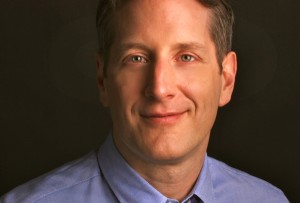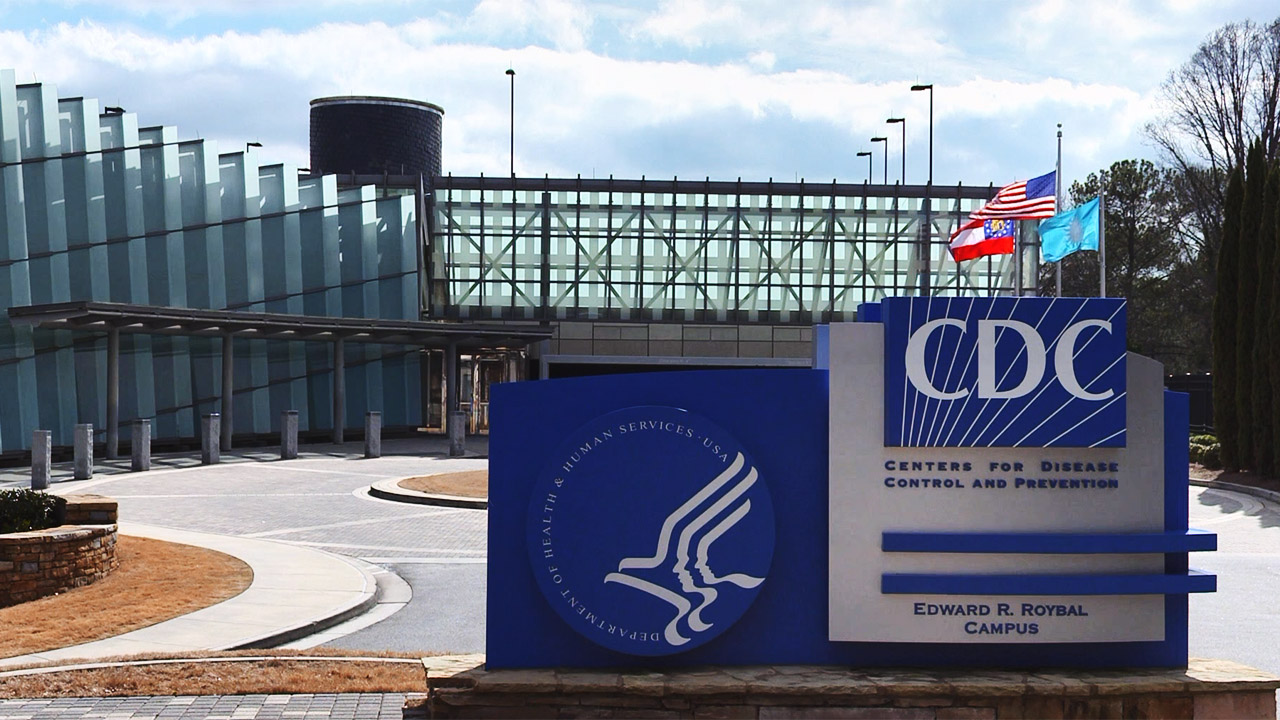Health
OWNing up to addictions
Former D.C. resident to launch show on Oprah’s new network

Gay author Brad Lamm says getting to the reasons behind why we overeat is key to long-term weight loss success. (Photo courtesy of the Change Institute)
Brad Lamm’s life has changed dramatically since his D.C. days.
In an epic biography of near fairy tale proportions, Lamm, a 44-year-old gay Oregon native who used to manage Cobalt, now lives in New York, beat a drug problem, has three published books under his belt and his own show slated to debut on Oprah’s new OWN network March 29.
Lamm visited Washington two weeks ago on a book tour for his latest volume, “Just 10 Lbs: Easy Steps to Weighing What You Want (Finally!)” and talked about the book, his show and how he turned his life around.
“Most people who start a diet will end up gaining the weight back and more,” Lamm told the Blade. “So I found what was really needed was a behavioral change book, which I did. It’s really about the reasons why, the what the how. People will often say they’re an emotional eater or they eat because they’re bored. Sometimes it’s even indicative of feelings of loneliness and it’s those underlying feelings we have, that’s why we turn to food. … Even if it’s something they’ve struggled with for decades, it’s really about how did this happen. It’s not rocket science. It’s not about the food.”
With so many diet books on the market, what can Lamm hope to offer that’s different? He admits it’s a crowded market — he counted 82 new diet books on a recent Barnes & Noble visit.
His philosophies were born out of his own addiction struggles. Lamm came to Washington in 1999 working as a weatherman for Fox affiliate WTTG. He says he “almost immediately” started doing crystal meth and was “very addicted for many years.”
He helped local nightlife entrepreneur Eric Little open Cobalt and was its director of operations from 2000 until 2003. Lamm was also a two-pack-a-day smoker and alcoholic who regularly consumed 10 to 12 drinks per day.
In the summer of 2002, friends convinced him he needed help. A turning point came when a friend, who’d tried to reach him 12 times the night before, finally got him on the phone around noon one day. Lamm had missed a 10 a.m. meeting. He says two things changed: deep down he knew “the gig was up” and he’d soon lose his job, friends and relationships if he continued on the path he was on. He also says being accountable to the friends who initiated the conversation made all the difference.
“I’d tried to stop drinking and smoking hundreds of times,” he says. “But I believed they loved me and it got bigger than me. It wasn’t just me in my own private hell.”
For Lamm, one thing led to another. Quitting smoking led to a weight gain, which led to getting that under control. And getting clean and sober led him back to New York where he’d lived after college. He went back to school and dabbled in various fields before starting his own intervention practice in 2008 — the Change Institute — after training as an interventionist in 2004. He calls it “invitational intervention,” a less-confrontational approach. He credits Colorado-based psychiatrist Judith Landau with introducing him to the concepts he endorses.
“We think of it as being some kind of ambush or surprise,” he says. “This is a six month-minimum program and is as much about doing work with the family as working with the addict.”
Lamm says he started developing a following in New York. An article he’d written found its way to Oprah who asked him to go to California to help an 800-pound friend who needed his own intervention. Originally conceived as a segment of her talk show, the cameras were eventually pulled and the segment never aired. Lamm felt in that situation the cameras were hindering the man’s progress.
But the experience got Lamm on Winfrey’s radar, obviously a turning point many dream of. Winfrey hired him to do some “internal stuff” with her Harpo staff, which led to more invitations and a burgeoning cottage industry.
“The Oprah halo certainly helped,” Lamm says. “I think my message was just different enough that it was a natural for the platform she provides.”
Lamm’s first book “”How to Help Someone You Love: Four Steps to Help You Help Them” was published in 2009. “How to Help the One You Love: A New Way to Intervene and Stop Someone from Self Destructing” came out last year. “Just 10 Lbs.” was moved up to a January release to tie in with the new show, “Addicted to Food,” which debuts on OWN on March 29.
Lamm and his partner, Scott Sanders, a producer on the Broadway show “The Color Purple,” got married in California in 2008. “Purple” author Alice Walker officiated. Oprah and pal Gayle King were both there. Lamm is also friendly with fellow gay Oprah acolyte-turned-TV show host Nate Berkus, whom he calls “a sweet guy.”
“It’s sort of weird,” Lamm says of his experience doing his own show. “It’s a surreal experience. We’ve already shot it and I believe it will be a success but in real time it’s sort of like I have this little secret over here. It’s a delicious calm right now.”
Lamm says he didn’t see the Barbara Walters interview in which Oprah, once again, denied being gay. He says the subject bores him.
“I’m sort of offended when people say she’s not straight,” he says. “Have you ever had a friend where you’re just sure the person is straight but one of your friends is convinced otherwise and just goes on and on about it ad nauseum? When people bring it up, I just want to say, ‘Enough already. She’s straight and I know better than you do on this.’”
Visit changeinstitute.com for more information on Lamm.
More gay characters on tap
In other gay TV news, look for a continuation of the trend of more gay characters and storylines in both scripted and reality shows.
The big dog, of course, is “Glee,” which is forging full-steam ahead with favorite teen couple Kurt (Chris Colfer) and Blaine (Darren Criss). Their show-stopping rendition of “Baby, It’s Cold Outside” was the most deliciously gay moment, perhaps, in network TV history. Season two may be extended to 25 episodes. A season finale date hasn’t been announced.
Other ongoing shows with gay characters include the CW’s “90210,” Showtime’s “Shameless,” MTV’s “Skins,” ABC Family’s “Pretty Little Liars” and ABC’s “Modern Family,” which is in the middle of its second season. A third has been ordered.
On the reality front, season two of “The A-List” doesn’t debut until fall. Logo has ordered 11 episodes and the entire original cast will return. Same for “The Real L Word’s” second season, which hasn’t been shot yet. And no official word yet on a second season of “Girls Who Like Boys Who Like Boys,” the Sundance guilty pleasure.
“RuPaul’s Drag Race” isn’t even halfway through its third season. Look for its 16-episode season to climax around May 23.
Health
UNAIDS to commemorate Zero Discrimination Day’s 10th anniversary
UN agency urges global action to protect human rights

As the world marks the 10th anniversary of Zero Discrimination Day; UNAIDS is sounding the alarm on the increasing threats to human rights, calling for renewed efforts to protect the rights of all individuals as a fundamental step towards ensuring health for everyone.
Established by UNAIDS a decade ago, Zero Discrimination Day aims to promote equality and fairness regardless of gender, age, sexuality, ethnicity or HIV status. The progress achieved over the past years is now in jeopardy, however, due to rising attacks on the rights of women, LGBTQ people and other marginalized communities.
UNAIDS Executive Director Winnie Byanyima emphasized the critical link between protecting human rights and safeguarding public health.
“The attacks on rights are a threat to freedom and democracy and are harmful to health,” she said in a press release. “Stigma and discrimination obstruct HIV prevention, testing, treatment and care and hold back progress towards ending AIDS by 2030. It is only by protecting everyone’s rights that we can protect everyone’s health.”
Despite challenges, there has been notable progress.
At the onset of the AIDS pandemic more than 40 years ago, two-thirds of countries criminalized consensual same-sex sexual relations. They are now decriminalized in two-thirds of countries. An additional 38 countries around the world have pledged to end HIV-related stigma and discrimination, contributing to positive changes that include 50 million more girls attending school compared to 2015.
To sustain and enhance these advancements; UNAIDS urges global support for women’s rights movements, LGBTQ rights, racial justice, economic justice, climate justice and peace initiatives. By standing with communities advocating for their rights, the U.N. aims to reinforce the collective effort towards a more inclusive and equitable world.
Zero Discrimination Day is observed on March 1.
Events and activities that will take place around the world throughout the month will serve as reminders of the essential lesson and call to action: Protecting everyone’s health is synonymous with protecting everyone’s rights.
“Through upholding rights for all, we will be able to achieve the Sustainable Development Goals and secure a safer, fairer, kinder and happier world — for everyone,” said Byanyima.
Health
New CDC report finds transgender women at higher risk for HIV
More than 1,600 people in seven cities surveyed

The Centers for Disease Control and Prevention issued a new study report this week that revealed that restricted by employment and housing discrimination and lack of access to needed gender-affirming healthcare for transgender women increasing the risk of contracting HIV.
Researchers reviewed data from a 2019-2020 survey, the National HIV Behavioral Surveillance Among Transgender Women, which found that the demographics of HIV/AIDS have been disproportionally high, especially among Black and Latina trans women, who had experienced employment and housing discrimination coupled with lack of access to gender-affirming healthcare.
The Jan. 25 Morbidity and Mortality Weekly Report was based on data studies of more than 1,600 trans women in seven major urban locales. Participants from Atlanta, Los Angeles, New Orleans, New York, Philadelphia, San Francisco and Seattle were chosen by referrals from people and community-based organizations who knew or were part of the local population of trans women.
The study’s researchers noted: “Employment discrimination occurs at the overlapping nexus of poverty, homelessness, incarceration, health insurance, disability, food insecurity and survival sex work. These issues are interconnected.”
The study stated that trans women’s inability to access quality healthcare, including gender-affirming treatment or access to PrEP, and can expose them to potential incarceration as many turn to “survival sex work” and violence, which increases the risk of contracting HIV.
The study’s author’s pointed out: “When economically marginalized transgender women are refused employment, this refusal cyclically contributes to economic hardships. This analysis …demonstrates the importance of transgender women working and living with dignity and without fear of unfair treatment.”
Health
A Whole New Perspective on Well-Being
The Mather’s team recognizes that everyone’s wellness journey is completely unique to their life experiences and influences.

It’s easy to spot the distinctive, elegant silhouette of The Mather, a Life Plan Community for those 62+ opening this spring in Tysons, Virginia. What is not apparent to the naked eye is The Mather’s unique wellness philosophy, which is literally built into the community.
The Mather’s team recognizes that everyone’s wellness journey is completely unique to their life experiences and influences.
Nature is one of the important factors that contribute to well-being. So The Mather is incorporating biophilic design—a design approach to facilitate access to nature or things that replicate natural patterns. This can include interior spaces with sightlines to a garden, choosing natural wood and stone as interior materials, or incorporating fragrant flowers and plants indoors to spark memories and provide tactile opportunities such as gardening.

“Providing biophilic design within interior settings connects residents to the natural world,” says Mary Leary, CEO and President of Mather, the organization behind The Mather. “Research shows that a connection to nature provides positive benefits to mental states and overall well-being. At The Mather, biophilic design is the intersection of buildings and programs with nature in an urban setting.”
“The Mather is attracting a diverse group of older adults,” says Mary. “As a result, we aim to incorporate wellness practices from around the world, including Wyda movement theory of the Celtic Druids, which helps people achieve harmony with nature and contentment through mindfulness.” This holistic regenerative approach is similar to Qi Gong and yoga, while born in a different part of the world. Mather Institute has a special focus on mindfulness to support older adults’ practice of present moment awareness, which can lead to increased overall well-being, compassion, and joy.
A very different example of a wellness offering at The Mather is the Gharieni Welnamis spa wave bed, which uses computer-controlled vibrational therapy and audio frequencies to train the brain to relax. “The bed increases mindfulness, concentration, and creativity—all of which support our mission of creating Ways to Age Well,SM” says Mary.
These and other personalized ways to wellness will ensure that residents of The Mather can choose from seemingly countless ways to focus on their well-being. In other words, the sky’s the limit!
-

 State Department2 days ago
State Department2 days agoState Department releases annual human rights report
-

 Maryland4 days ago
Maryland4 days agoJoe Vogel campaign holds ‘Big Gay Canvass Kickoff’
-

 Politics3 days ago
Politics3 days agoSmithsonian staff concerned about future of LGBTQ programming amid GOP scrutiny
-

 The White House1 day ago
The White House1 day agoWhite House debuts action plan targeting pollutants in drinking water












